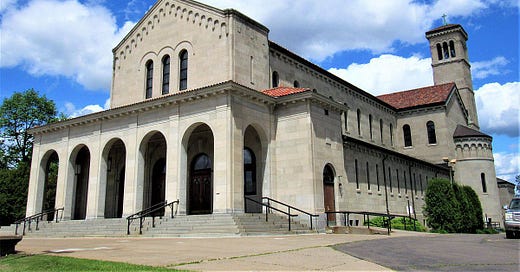Catholic Charities Bureau Denied Tax Exemption at Wisconsin Supreme Court
Update: The Wisconsin Supreme Court’s decision in this case was reversed by the U.S. Supreme Court on June 5, 2025.
What does it mean for an organization to be “operated primarily for religious purposes.” That’s the question the Wisconsin Supreme Court answered in its recent 4-3 decision in Catholic Charities Bureau, Inc. v. Labor & Industry Review Commission.
At issue was the applicability of an unemployment insurance tax exemption for individuals employed by five charity organizations operated by the Diocese of Superior: Catholic Charities Bureau and four of its sub-entities. The exemption, found at Wis. Stat. § 108.02(15)(h)2., provides an exemption for employees of nonprofit organizations that are (1) affiliated with a religious organization and (2) “operated primarily for religious purposes.” It was undisputed that Catholic Charities Bureau and its sub-entities are affiliated with the Catholic Church. The disagreement was over whether they are “operated primarily for religious purposes.”
Full Disclosure: I, along with a team of talented attorneys, submitted an amicus brief in this case on behalf of several parochial schools and organizations, arguing that Catholic Charities Bureau and its sub-entities are eligible for the exemption. The majority disagreed with our position, but our brief garnered some attention in Justice Rebecca Bradley’s dissenting opinion.
Catholic Charities Bureau and its sub-entities argued that they were operated primarily for religious purposes because the Diocese’s motivations for operating the charities were primarily religious—i.e., living out their faith by following Scripture’s directive to serve others in charity. In response, the Labor & Industry Review Commission and the Department of Workforce Development (collectively “LIRC”) countered that religious motivations are insufficient to establish a nonprofit’s religious purposes. Rather, both the nonprofit’s motivations and its activities must be examined to determine whether a nonprofit has a religious purpose. To this, Catholic Charities Bureau responded that both the First Amendment and article I, section 18 of the Wisconsin Constitution forbid the inquiry LIRC proposed.
The majority opinion by Justice Ann Walsh Bradley (and joined by Justices Dallet, Karofsky, and Protasiewicz) largely adopted LIRC’s position. It began by holding that the statute’s inquiry focuses on the purposes of the nonprofit itself, not the religious organization the nonprofit is affiliated with. Next, it held that the statute’s use of the phrase “operated primarily for religious purposes” calls for an investigation into both the motivations and the activities of the nonprofit.
On the subject of what sorts of activities qualify as “religious,” the majority declined to offer any sort of bright-line rules, focusing instead on why the activities of the nonprofits at issue in this case were not religious. The closest the majority came to outlining some sort of rule was in paragraph 64, where the court said that a nonprofit generally will not qualify for the exemption if “they offer services that would be the same regardless of the motivation of the provider.” This, the court reasoned, is “a strong indication that the sub-entities do not ‘operate primarily for religious purposes.’” Here, the court held that neither Catholic Charities Bureau nor its sub-entities are eligible for the exemption because their charity work lacks a religious dimension that would differentiate their services from services provided by a secular nonprofit organization.
Next, the majority turned to Catholic Charities Bureau’s constitutional arguments, which fell into three categories: (1) an argument that LIRC’s interpretation of the exemption creates excessive state entanglement with religion; (2) an argument that LIRC’s interpretation violates the church autonomy principle; and (3) an argument that LIRC’s interpretation unconstitutionally discriminates against churches with a more complex polity (such as churches that conduct charity through an affiliated sub-entity rather than directly).
The majority opinion rejected all three of these First Amendment arguments. On excessive entanglement, it pointed to the history of tax exemptions turning on whether organizations participate in religious activities as evidence that such an inquiry does not run afoul of the First Amendment. On the church autonomy issue, the court held that its interpretation would not interfere with church internal governance or ecclesiastical matters. And the court rejected the religious discrimination argument on a threshold issue, holding that Catholic Charities Bureau failed to show that the statute burdens religious exercise “in a constitutionally significant way.”
Justice Rebecca Bradley penned a lengthy dissent which was joined by Chief Justice Ziegler in all but one paragraph. In the dissent, Justice Rebecca Bradley challenged the majority’s interpretation of the exemption, reasoning that the statutory text, “operated primarily for religious purposes,” unambiguously asks whether the nonprofit is managed primarily for religious reasons—i.e., whether its motivations were religious. She explained that expanding the inquiry to examine the nonprofit’s activities, as the majority held, improperly requires the state to draw lines between what are and are not “religious” activities.
The dissent then turned to the constitutional arguments. Justice Rebecca Bradley argued that the majority’s interpretation of the exemption violates the First Amendment and the Wisconsin Constitution because it discriminates among religious faiths. By considering whether the organization’s activities are religious in nature, the majority’s test calls for some line-drawing between what is and is not a religious activity. But, for some faiths, charity is a religious directive—one that is not to be mixed with proselytizing. The majority’s test, Justice Bradley offered, discriminates against such faiths by concluding that religiously motivated charity is not a religious activity unless it is paired with some other, more overtly religious activity.
Justice Hagedorn authored a one-paragraph solo dissent, largely agreeing with Justice Rebecca Bradley’s statutory construction of the tax exemption but indicating that he would not have reached the constitutional questions addressed in the dissent.
In light of the First Amendment issues involved, it’s possible this case could take a trip to the U.S. Supreme Court before all is said and done.
Caleb Gerbitz is an appellate and commercial litigation attorney at the Milwaukee law firm of Meissner Tierney Fisher & Nichols.




